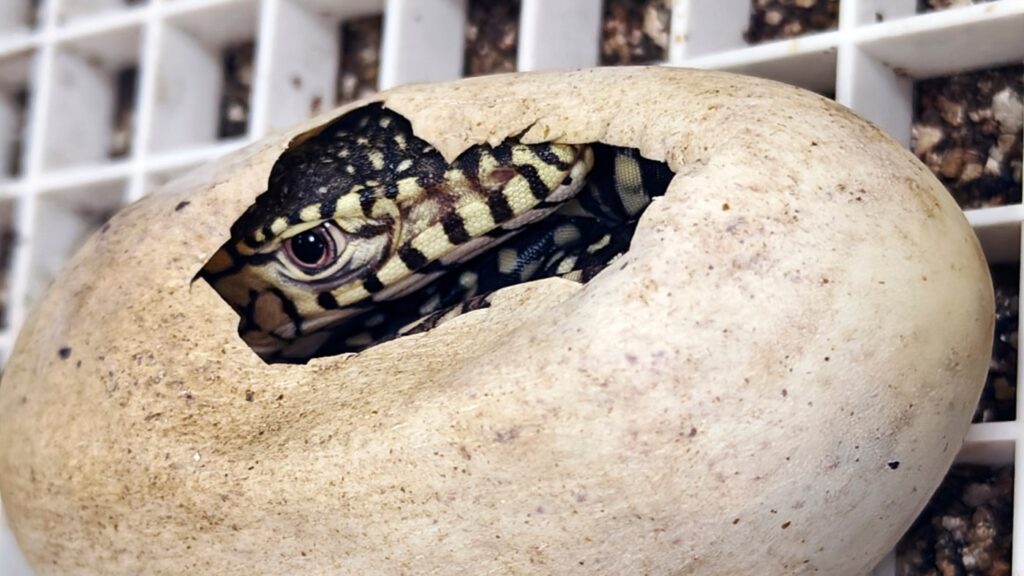
LOS ANGELES — Two new baby lizards have hatched at the Los Angeles Zoo, the first of their species to be bred there, zoo officials said Thursday.
Perentie lizards, or Varanus giganteus, are native to Australia and one of the world’s largest lizards, dwarfed only by the Komodo dragon and a few others.
“It is incredibly rewarding for our team to experience success breeding this species,” zoo curator Byron Wusstig said in a statement. “This species is not endangered, but it is rarely seen in zoo settings outside of Australia.”
This photo provided by the Los Angeles Zoo shows one of two newly born perentie lizards at the zoo, Thursday, Dec. 12, 2024, in Los Angeles. (Jamie Pham/Los Angeles Zoo via AP)
The LA Zoo is one of only three institutions accredited by the Association of Zoos and Aquariums that have successfully reproduced them, Wusstig said, and it is the first time the zoo has bred the perentie lizard species in its history.
This photo provided by the Los Angeles Zoo shows one of two newly born perentie lizards at the zoo, Thursday, Dec. 12, 2024, in Los Angeles. (Jamie Pham/Los Angeles Zoo via AP)
Related Articles
Illegally trafficked live turtles found in Torrance lead to guilty plea in federal court
Girl, 5, killed by family’s dogs in backyard attack near Covina
Big A exposure will help homeless pets in Orange County
Zoya, one of world’s oldest Amur leopards, dies at the Living Desert Zoo and Gardens
Wild parrots are being shot at increasing rates in the San Gabriel Valley, wildlife groups say
Zoo officials said the baby lizards are doing well, eating, and being closely observed by staff. They will be raised off-exhibit in a controlled environment in their early stages of life. Visitors can see the father in the zoo’s Australia section by the Komodo dragon habitat.
Adult perentie lizards can reach more than 8 feet in length and can weigh more than 40 pounds, the zoo said. They have brown skin with cream or yellow markings. The carnivorous species eats turtle eggs, insects, birds, other reptiles, and small mammals and marsupials, and they swallow their prey whole.
